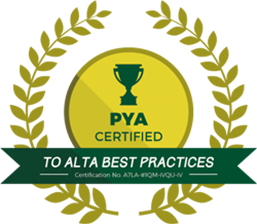
 The Consumer Financial Protection Bureau (CFPB) was established by the Dodd-Frank Act of 2010 as part of the federal government’s response to the financial crisis of 2008. Like any economic development, good or bad, the 2008 real estate market crisis consisted of a dangerous combination of irresponsible lenders, unsophisticated borrowers and weak consumer protection in the financial sector.
The Consumer Financial Protection Bureau (CFPB) was established by the Dodd-Frank Act of 2010 as part of the federal government’s response to the financial crisis of 2008. Like any economic development, good or bad, the 2008 real estate market crisis consisted of a dangerous combination of irresponsible lenders, unsophisticated borrowers and weak consumer protection in the financial sector.
The CFPB was created to protect consumers and help educate them when it came to a financial transaction. The goal was simple – watch out for the American consumer in the market of financial products and services.
Federal regulatory responsibilities that had been scattered across multiple agencies were consolidated within the CFPB. The agency took on both supervisory and enforcement authority over consumer finance, including mortgages, student loans, credit cards and consumer loans.
In its supervisory role, the CFPB is responsible for promoting regulations and guidelines under a variety of statutes, primarily the Truth in Lending Act (TILA), the Real Estate Settlement Procedures Act (RESPA) and the Equal Credit Opportunity Act (ECOA). Entities involved in consumer lending can look to the CFPB for guidance on questions of compliance. Those same entities are subject to CFPB review and reporting. The bureau establishes and publicizes acceptable tolerance levels for each specific regulatory category.
The CFPB can enforce compliance in two ways. First, mandatory reports from supervised entities can give rise to both orders compelling compliance and fines levied for regulatory transgressions. Regions Bank, for example, was recently fined $7.5 million for overdraft violations, ordered to correct illegal practices and required to refund some $49 million in fees it had collected from its customers.
Second, consumers may voice concerns and provide feedback directly to the CFPB, in which case the bureau will investigate and take such action it deems appropriate. The bureau’s powers to levy fines, order restitution and undo illegal transactions are equally applicable to individual consumer complaints.
Champion Title is licensed to conduct closings in Washington, DC and in every county in Colorado, Delaware, Florida, Maryland, Michigan, Nebraska, New Jersey, North Carolina, Pennsylvania, Tennessee, West Virginia, Wisconsin, and Virginia. Please visit us online at www.ChampionTitle.comor click hereto read our handy homebuyer’s guide!











Leave A Comment